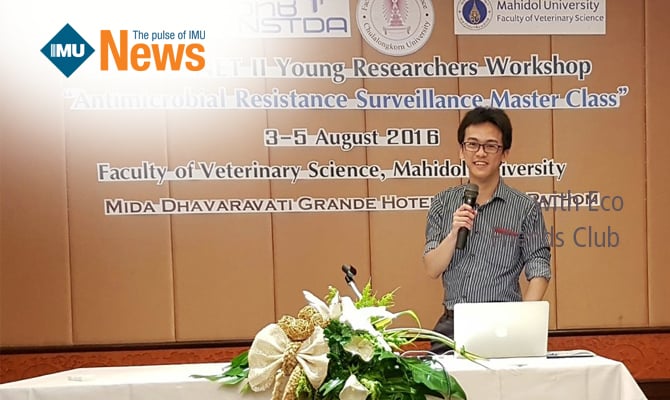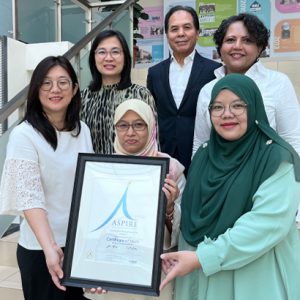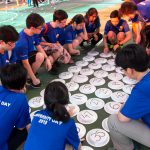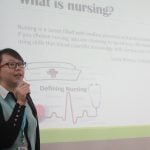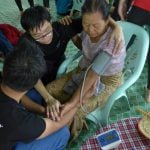The One Health Concept has been formulated as a worldwide strategy for expanding interdisciplinary collaborations in all aspects of healthcare for humans, animals and environment. This synergism is going to advance biomedical science research, to enhance public health efficacy, to expand scientific knowledge and to improve medical education and clinical care. Pharmacists, together with all healthcare professionals, have a pivotal role in both pharmaceutical care and most importantly, drug discovery. 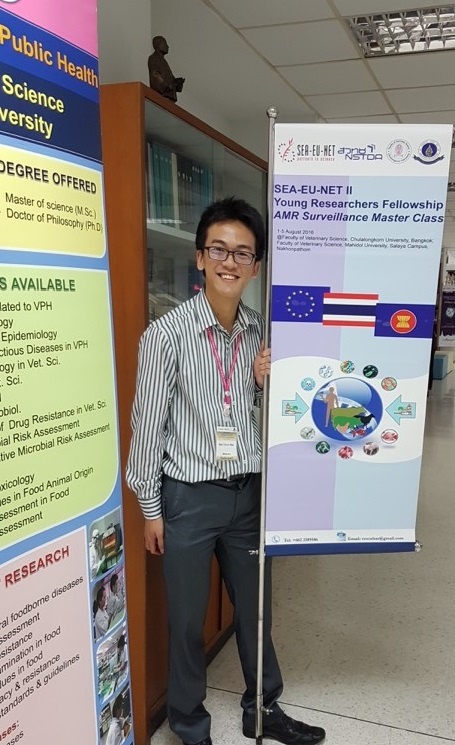 Dr Mai Chun Wai, an alumnus of IMU’s Bachelor of Pharmacy (Hons) and Doctor of Philosophy (PhD) programmes, is one of the selected participants to the Southeast Asia-European Union Network II (SEA-EU-NET II) Fellowship. This fellowship is only awarded to 6 selected Asia participants and 6 selected European participants, to develop an integrated network between Asia and European countries to combat antimicrobial resistance, as part of the World Health Organization’s One Health Surveillance Initiative. The training resumed at Thailand after a week of training at Liverpool University, United Kingdom. The participants were exposed to the impact of antimicrobial resistance to Asia by A/Prof Rungtip Chuanchuen (Chulalongkorn University) and Prof Visanu Thamlikitkul, (Mahidol University). Dr Mai acknowledged that there are many gaps that has to be filled in order to combat antimicrobial resistance and it is important for everyone towork hand-in-hand to combat this global health issue holistically.
Dr Mai Chun Wai, an alumnus of IMU’s Bachelor of Pharmacy (Hons) and Doctor of Philosophy (PhD) programmes, is one of the selected participants to the Southeast Asia-European Union Network II (SEA-EU-NET II) Fellowship. This fellowship is only awarded to 6 selected Asia participants and 6 selected European participants, to develop an integrated network between Asia and European countries to combat antimicrobial resistance, as part of the World Health Organization’s One Health Surveillance Initiative. The training resumed at Thailand after a week of training at Liverpool University, United Kingdom. The participants were exposed to the impact of antimicrobial resistance to Asia by A/Prof Rungtip Chuanchuen (Chulalongkorn University) and Prof Visanu Thamlikitkul, (Mahidol University). Dr Mai acknowledged that there are many gaps that has to be filled in order to combat antimicrobial resistance and it is important for everyone towork hand-in-hand to combat this global health issue holistically. 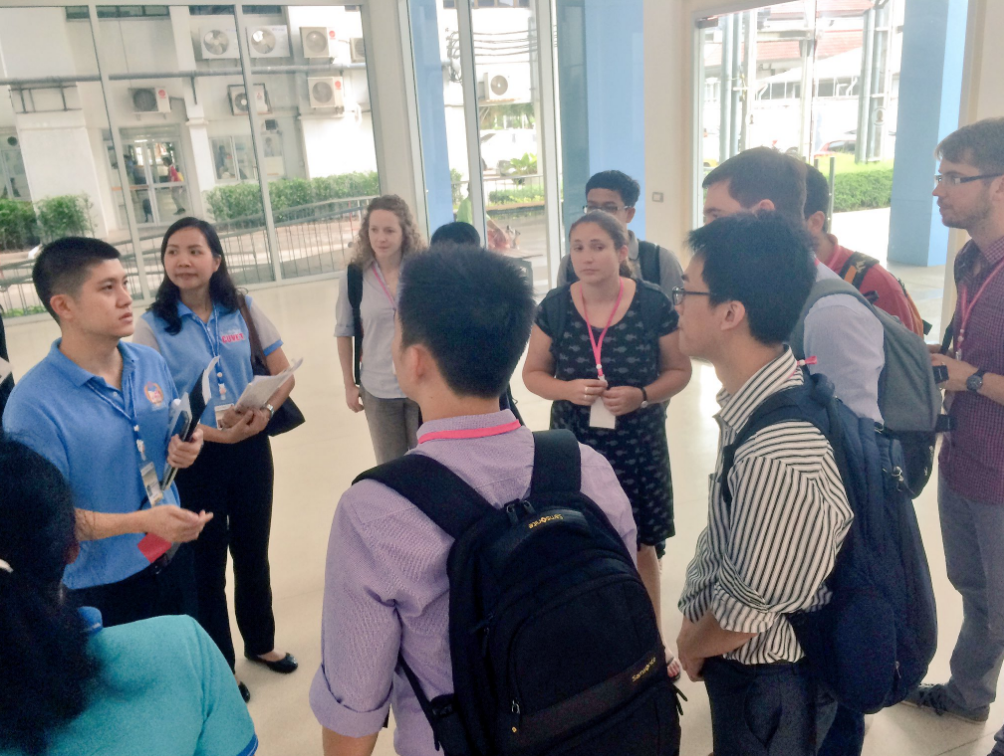 Chulalongkorn University has also selected Dr Mai, to represent the remaining Asia delegates to share the training conducted by Liverpool University in July 2016. Dr Mai shared the challenges Asia is facing to combat antimicrobial resistance. This issue is not a challenge solely for developing countries in Asia but also in developed countries such as Europe and United Kingdom. Several field visits to various facilities were arranged by Chulalongkorn University and Mahidol University as many of the participants were unfamiliar with the health challenges faced in Thailand. These include visits to Small Animal Hospitals, Laboratory Animal Facilities, Veterinary Research Laboratories, crocodile show and farms at Nahkonpathom. Dr Mai found this experience to be an eye-opening experience learning in the Small Animal Hospitals in Thailand which are fully equipped with specialists and equipment for diagnosis as well as therapy. Some of these facilities are even better than hospital for humans in some countries at Asia. In addition, crocodile farming at Thailand adheres to international trade standard, and high benchmarking standards. It is definitely a role model to other livestock or wildlife farms in all countries.
Chulalongkorn University has also selected Dr Mai, to represent the remaining Asia delegates to share the training conducted by Liverpool University in July 2016. Dr Mai shared the challenges Asia is facing to combat antimicrobial resistance. This issue is not a challenge solely for developing countries in Asia but also in developed countries such as Europe and United Kingdom. Several field visits to various facilities were arranged by Chulalongkorn University and Mahidol University as many of the participants were unfamiliar with the health challenges faced in Thailand. These include visits to Small Animal Hospitals, Laboratory Animal Facilities, Veterinary Research Laboratories, crocodile show and farms at Nahkonpathom. Dr Mai found this experience to be an eye-opening experience learning in the Small Animal Hospitals in Thailand which are fully equipped with specialists and equipment for diagnosis as well as therapy. Some of these facilities are even better than hospital for humans in some countries at Asia. In addition, crocodile farming at Thailand adheres to international trade standard, and high benchmarking standards. It is definitely a role model to other livestock or wildlife farms in all countries. 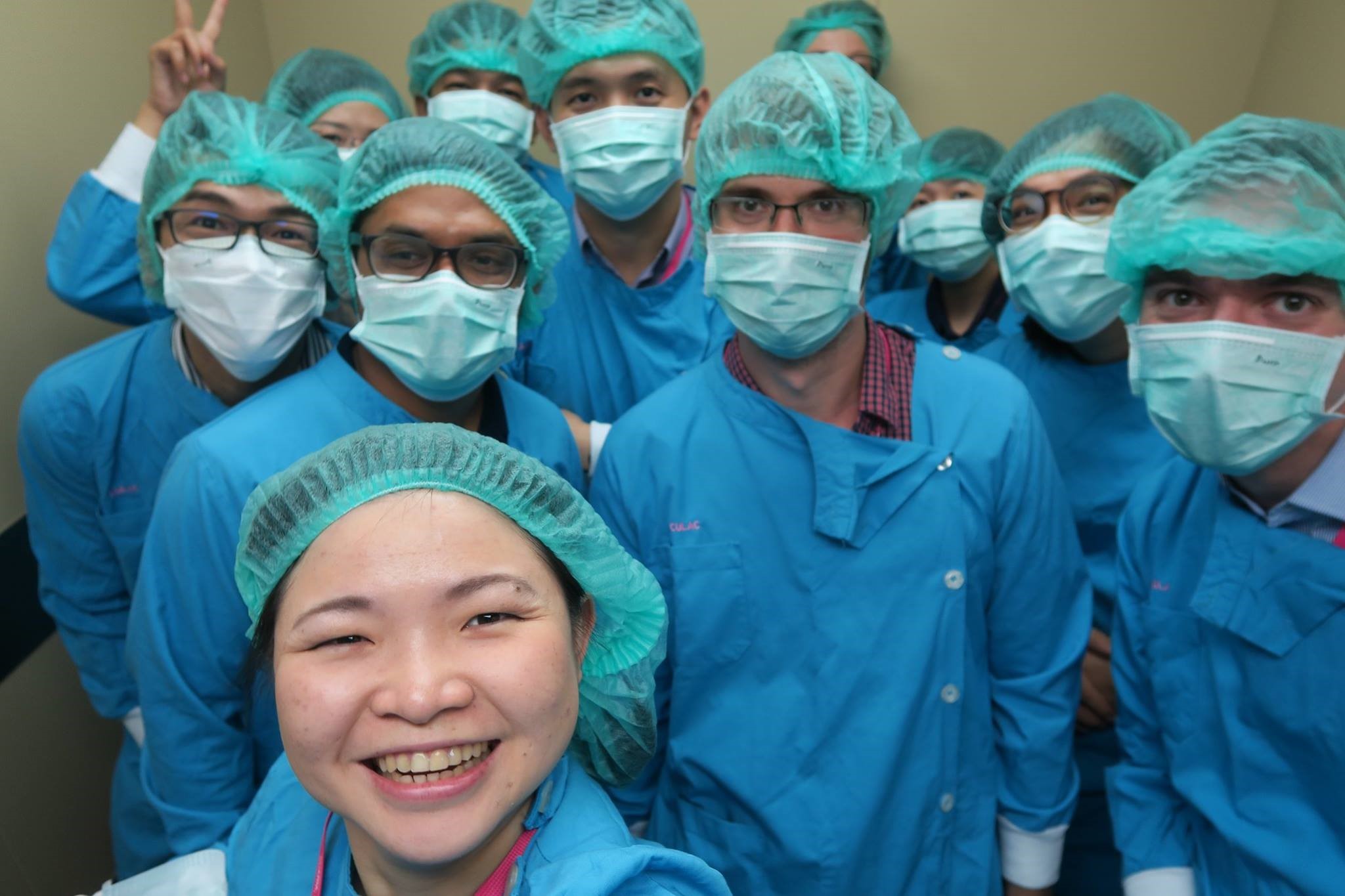
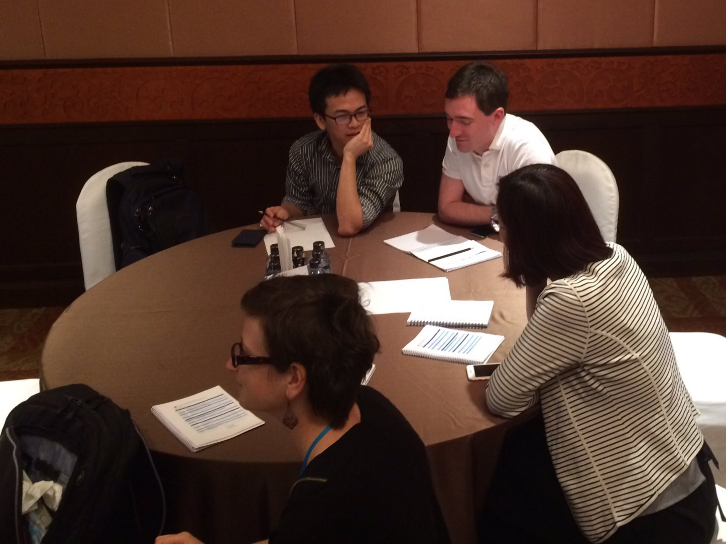 The training in Thailand includes several hands-on preparation of research proposal. The participants were divided into groups, and each group should prepare a research proposal to address the issue of antimicrobial resistance. Being a pharmacist and laboratory scientist, Dr Mai has contributed the technical expertise in planning the laboratory setup for surveillance research proposal. The team received constructive feedback and good remarks by the panel, and certainly there is room for collaboration in the future. Dr Mai expressed his gratefulness to the panel for selecting him to be one of the 6 participants to this Fellowship. The competition is very intense and he is very grateful for the training and support by IMU since his graduation.
The training in Thailand includes several hands-on preparation of research proposal. The participants were divided into groups, and each group should prepare a research proposal to address the issue of antimicrobial resistance. Being a pharmacist and laboratory scientist, Dr Mai has contributed the technical expertise in planning the laboratory setup for surveillance research proposal. The team received constructive feedback and good remarks by the panel, and certainly there is room for collaboration in the future. Dr Mai expressed his gratefulness to the panel for selecting him to be one of the 6 participants to this Fellowship. The competition is very intense and he is very grateful for the training and support by IMU since his graduation. 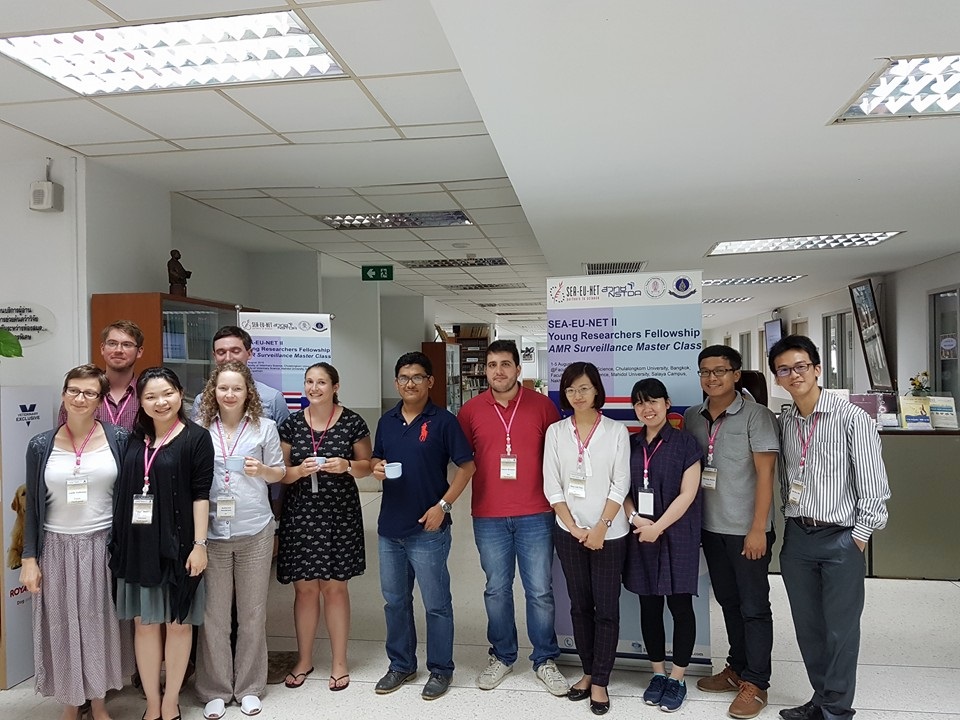 Photo credits: CW Mai, KC Liew, L Lucy Related article: IMU Alumnus is Only Malaysian Sponsored Participant to Southeast Asia-European Union Network
Photo credits: CW Mai, KC Liew, L Lucy Related article: IMU Alumnus is Only Malaysian Sponsored Participant to Southeast Asia-European Union Network




